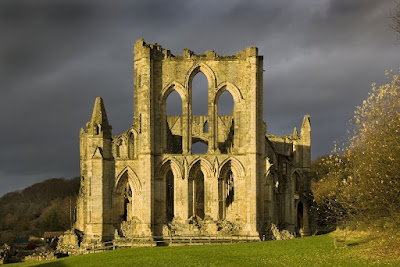It took place in a remote village in the foothills of the mountains of Transylvania. We set off soon after 7am in the dark. Snow became deeper as the cars climbed to Poiana Mereu. We passed many on foot making their way towards the church. This was not simply an Ordination; it was also the Consecration of a newly built church, and alongside Nicolai was another man who had been made Deacon with him a week earlier They were now both to be ordained Priests. The Church was to become not just a parish church, but also the church of a restored Monastic Community.
 |
| Welcoming the Bishop - his Deacon at his side. Nicolai the tall figure on the left, the young p-p in pink on the Bishop's left |
Then he was taken to rest for a while, until late in the afternoon we all met in the Village Hall for a feast. This was in pre-Advent, so fish was the main part of the meal. On the table were bottles of Whisky, containers of very good local wine, and teapots of what looked like very weak tea. It is water, said the Bishop to me: Water indeed! Firewater, rather - Tzvika, the local plum brandy.
 |
| Nicolai, me and the Bishop as the Feast began |
I was reminded if all this by a couple of photos (above) which I came across in preparing to move house: and in view of recent correspondence elsewhere about Consecration Rites thought it might be interesting. The three most imortant things I learned from Romanian Orthodoxy? That the liturgy was put into the vernacular in 1662 and no one seems to hanker after Slavonic; that it is perfectly normal for priests to be married: and that Deacons are far more important for the functioning of the Liturgy than are priests.


















































